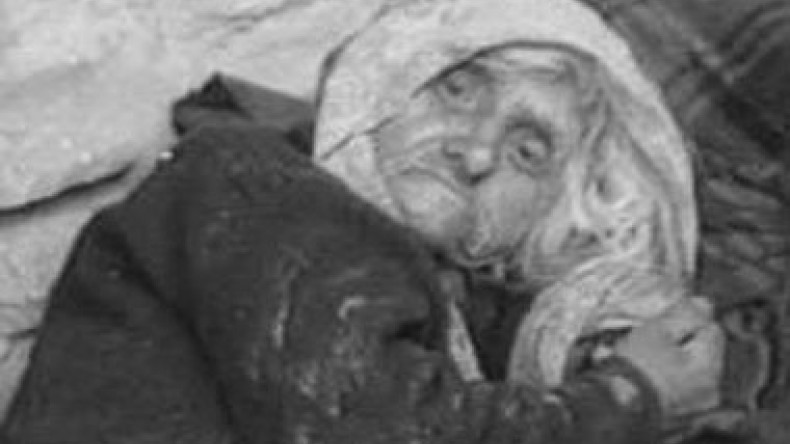
"Maragha, 10 April 1992. An Ordinary Genocide" premiere due shortly
The work on the documentary film "Maragha, 10 April 1992" is completed; it is the third one in a series of "Ordinary genocide." The film is about the massacre which has been remained unknown to the world, about dozens of inhabitants of village Maragha in Nagorno Karabakh who have been brutally murdered, taken hostage, tortured. Some of the inhabitants are recorded as missing so far.
Crucifixion of Maragha which Baroness Caroline Cox called "a modern Golgotha, but for many times worse," is presented by eyewitnesses, evidences of which are proved by the scenes of the documentary chronicles.
"Stories of the former inhabitants of Maragha, living today in New Maragha village, are shedding light on many previously unknown facts about the causes and consequences enacted on April 10, 1992, the day of the tragedy” the manager of the "Ordinary genocide” project Marina Grigoryan said. “In particular, we managed to prove that the destruction of Maragha by the Azerbaijani, the massacres and capturing of the inhabitants - among them women, children, elderly people was directly connected with Baku’s interests in oil. In addition, there are other, previously unknown, facts and evidences depicted in the film."
According to M. Grigoryan, in parallel with the release of the new films they do not stop searching for new data on the genocide of Armenians in Baku and Sumgait. Thus, we have found documents which come to prove the facts of monstrous massacres against the Armenians in Baku in the period preceding Baku pogroms of January 1990. These facts will be reflected in the updated version of the film "Baku, January 1990.
The premiere screening of the film "Maragha, April 10, 1992” is anticipated in mid-September on the Public Television of Armenia.The project "Ordinary Genocide" is implemented by the initiation of the Center of Information and Public Relations of the President of Armenia. The first two films of the series “Baku, January 1990 ", and "Sumgait, February 1988" were presented respectively, in January and April. The films are translated into Russian, English, French and Arabic; they are available on the Internet and are widely distributed in DVDs.
Newsfeed
Videos






























